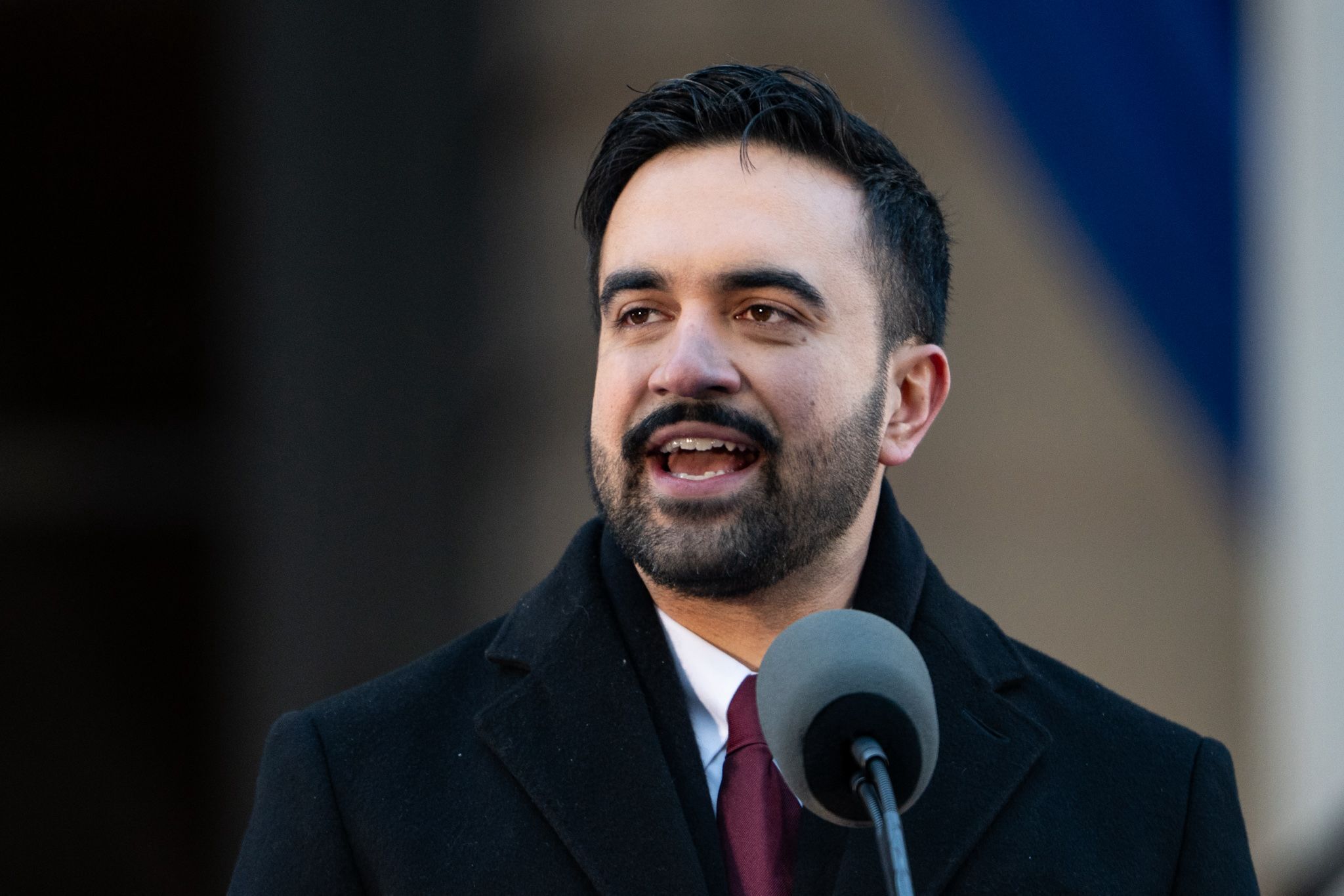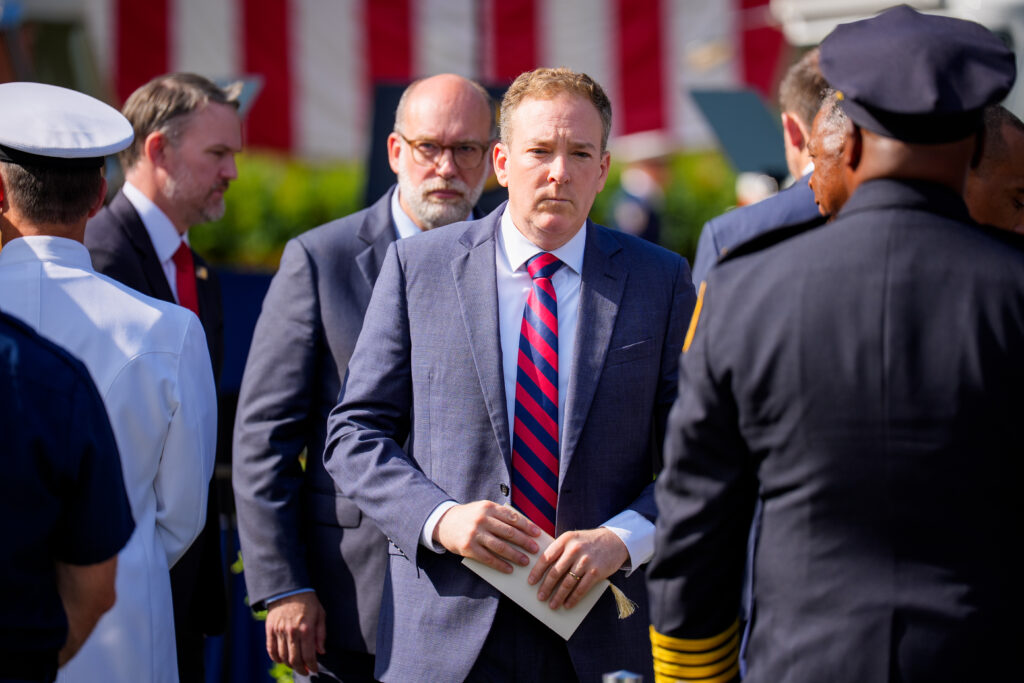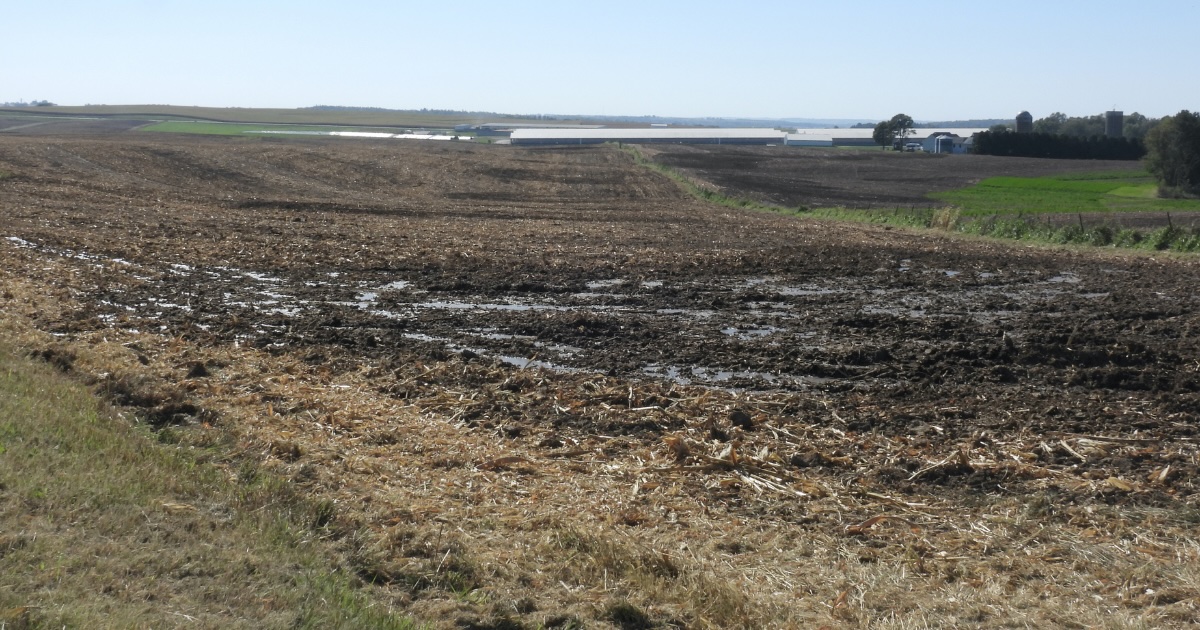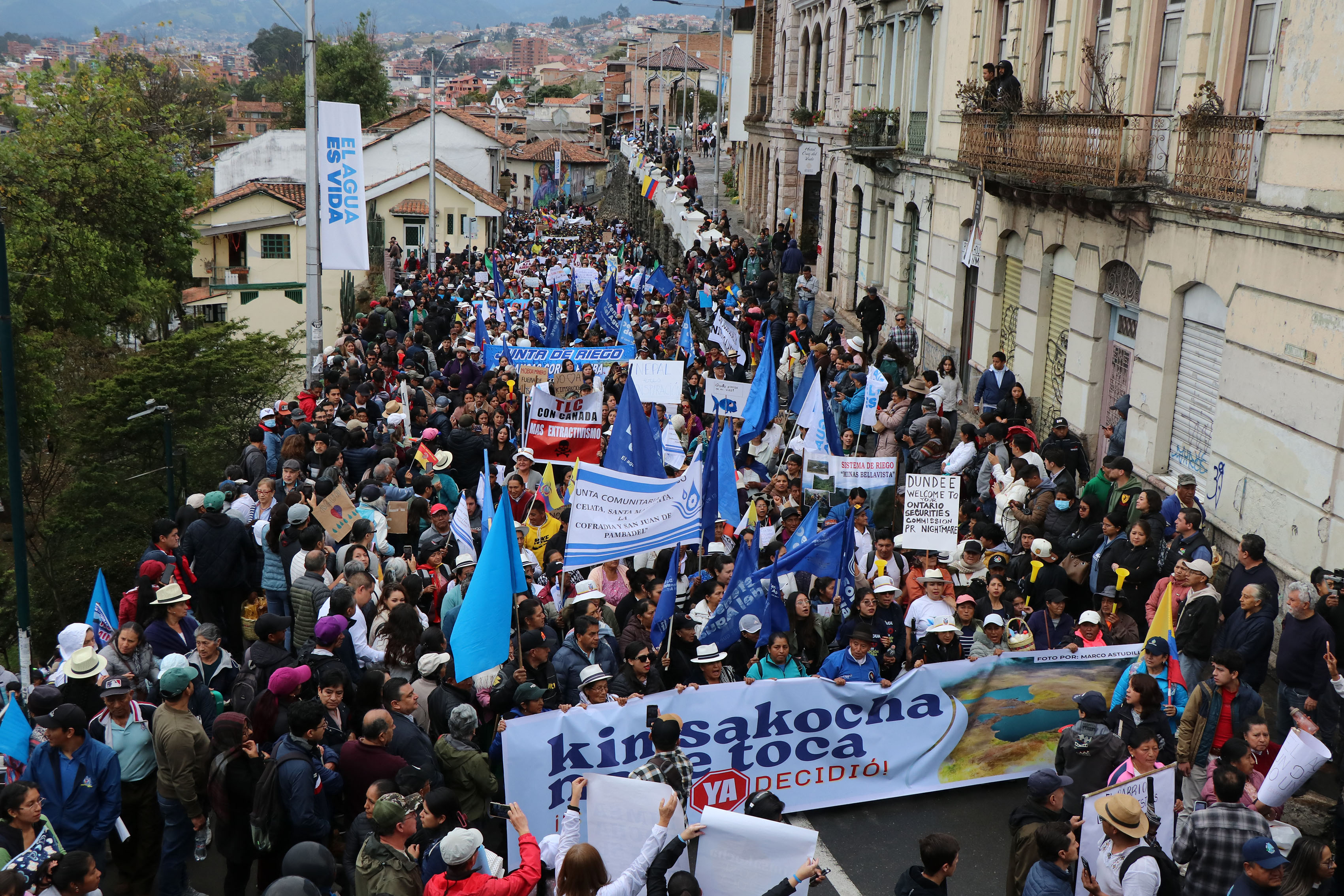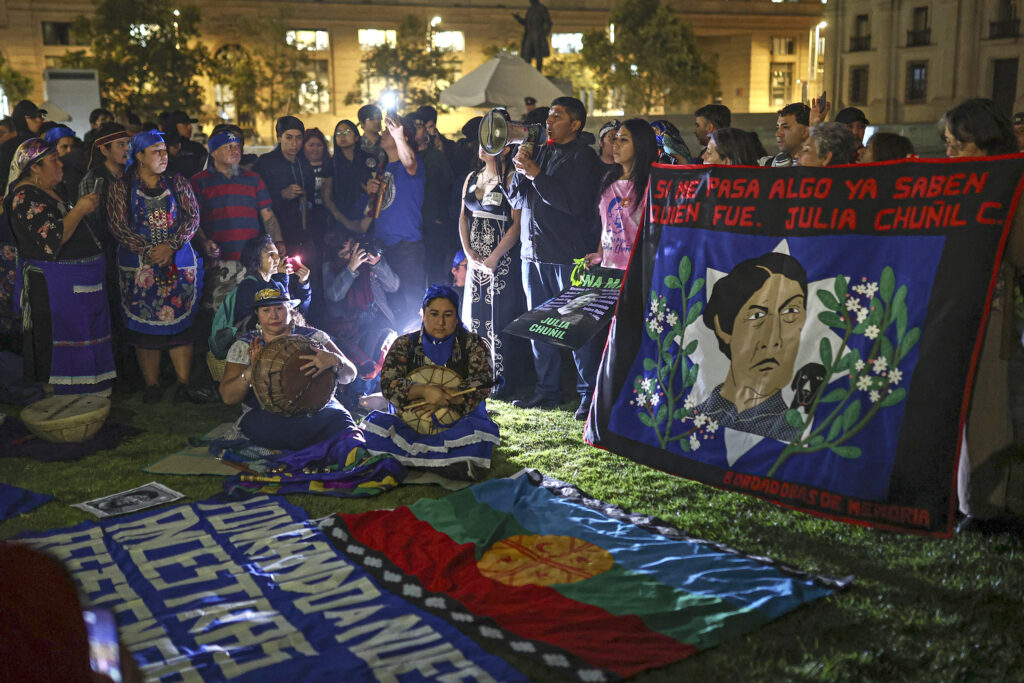NEW YORK—Hundreds of young people and their allies walked out of school and work on Friday afternoon to call for government and industry leaders to end the production of fossil fuels to combat the climate crisis.
The strike was organized by the local chapter of the international youth-led movement Fridays for Future as part of a global call to action. It was timed to precede NYC Climate Week, an annual event organized by the nonprofit Climate Group to coincide with the United Nations General Assembly session and bring world governments, the private sector and nonprofit leaders to New York City to talk about climate challenges and solutions.
“We protest because the world hasn’t listened,” said 17-year-old Fridays for Future activist Lorelai Crean. “For years, scientists, activists and people with lived experiences have been sounding the alarm about the climate crisis. Today we walked out of over 25 schools across the city to amplify that alarm. The threat posed to our planet by the fossil fuel industry and climate change has never been clearer.”
Explore the latest news about what’s at stake for the climate during this election season.
Strike organizers said that they want to send a clear message to business leaders, lawmakers and financial institutions participating in climate week that young people will not stand for greenwashing or false solutions and want to see a decisive focus on swiftly phasing out oil, gas and coal production worldwide, in response to dire scientific warnings about the consequences of continuing to burn the fuels.
“We need to be focusing on equity, justice and ending the era of fossil fuels,” said Lena Goings, a 16-year-old organizer with Fridays for Future. “We cannot beat around the bush with this, we have to make sure that this is our focus.”
Fridays for Future activists are targeting what they called the three main pillars holding up the fossil fuel industry: the financial sector funding it, the polluting companies themselves and lawmakers with regulatory powers over them.
One of Fridays for Future NYC’s specific demands is for New York Gov. Kathy Hochul to sign the Climate Change Superfund Act into law. The bill, which passed both the state Senate and Assembly, would require companies contributing significantly to greenhouse gas emissions to bear a share of the cost for infrastructure investments needed for climate adaptation.


Proponents of the bill have been urging Hochul to sign it quickly, arguing that New York taxpayers are facing rising costs due to heat waves and extreme weather. Meanwhile, the Business Council of New York has urged Hochul to veto the bill, arguing that it will hurt bottom lines.
Hochul’s office did not confirm whether or not she plans to sign the bill, but Paul DeMichele, Hochul’s deputy communications director for energy and environment, wrote over email that “the Governor will review the legislation.”
The New York City strikers were joined by climate activists from across the country and other nations around the world, including Bangladesh, Ecuador, Mexico, Taiwan and Uganda. Strikers began in Manhattan’s Foley Square and marched across the Brooklyn Bridge to Borough Hall, where a smaller group gathered for speeches by activists who spoke about the climate crisis and their personal experiences living near extractive industries.
“In my country, climate activism is not a choice, it’s a matter of survival.”
— Hilda Flavia Nakabuye, a Fridays for Future Uganda activist
The speakers included Louisiana activist Roishetta Ozane, who spoke about the liquified natural gas buildout on the Gulf Coast, and her 12-year-old daughter, Kamea, who spoke about growing up in a heavily polluted community.


“I should be able to go outside and play with my friends instead of being worried about what’s going to happen tomorrow or the next day,” said Kamea Ozane, who suffers from asthma. “This is not okay. I say we need to stop the funding of fossil fuels and put the people over the profit.”
Hilda Flavia Nakabuye, a 27-year-old activist with Fridays for Future Uganda, has helped organize campaigns against the 1,443 kilometer East African Crude Oil Pipeline under construction in Uganda and Tanzania. Nakabuye said she joined the march on Friday to remind decision makers at Climate Week and the U.N. General Assembly that they have power to help global communities impacted by fossil fuel development.
“In my country, climate activism is not a choice, it’s a matter of survival,” Nakabuye said. “We bear the full weight of a crisis that we did not create. Every day we face rising temperatures, drought, mudslides and landslides that claim people’s lives, destroy homes and devastate our farms.”
Last month, 21 activists, including 6 members of Fridays for Future Uganda, were arrested and detained for peacefully protesting the pipeline in Kampala. Pipeline protesters in Uganda have faced consistent violent crackdowns and repression. Nakabuye said that support from climate activists outside of Uganda is essential in the campaign against the pipeline, given the severe repression activists on the ground in the country have faced.


“We live in a country with a repressed civic space and most of the solidarity that we require right now is global solidarity,” Nakabuye told Inside Climate News. “Protesting is not safe” in Kampala.
Strike participants from Latin America also called for global solidarity and called out “green colonialism.”
“Our problem is not only fossil fuels but extractivism and capitalism,” said Xananine Calvillo, with the Stop Financing Factory Farming Coalition. “Any source of energy or food can become a source of exploitation under capitalism, a source of disparities that will put other cultures and societies under pressure of a capitalism and neoliberal system that threatens life for the only reason that it can become a source of profit.”
About This Story
Perhaps you noticed: This story, like all the news we publish, is free to read. That’s because Inside Climate News is a 501c3 nonprofit organization. We do not charge a subscription fee, lock our news behind a paywall, or clutter our website with ads. We make our news on climate and the environment freely available to you and anyone who wants it.
That’s not all. We also share our news for free with scores of other media organizations around the country. Many of them can’t afford to do environmental journalism of their own. We’ve built bureaus from coast to coast to report local stories, collaborate with local newsrooms and co-publish articles so that this vital work is shared as widely as possible.
Two of us launched ICN in 2007. Six years later we earned a Pulitzer Prize for National Reporting, and now we run the oldest and largest dedicated climate newsroom in the nation. We tell the story in all its complexity. We hold polluters accountable. We expose environmental injustice. We debunk misinformation. We scrutinize solutions and inspire action.
Donations from readers like you fund every aspect of what we do. If you don’t already, will you support our ongoing work, our reporting on the biggest crisis facing our planet, and help us reach even more readers in more places?
Please take a moment to make a tax-deductible donation. Every one of them makes a difference.
Thank you,







